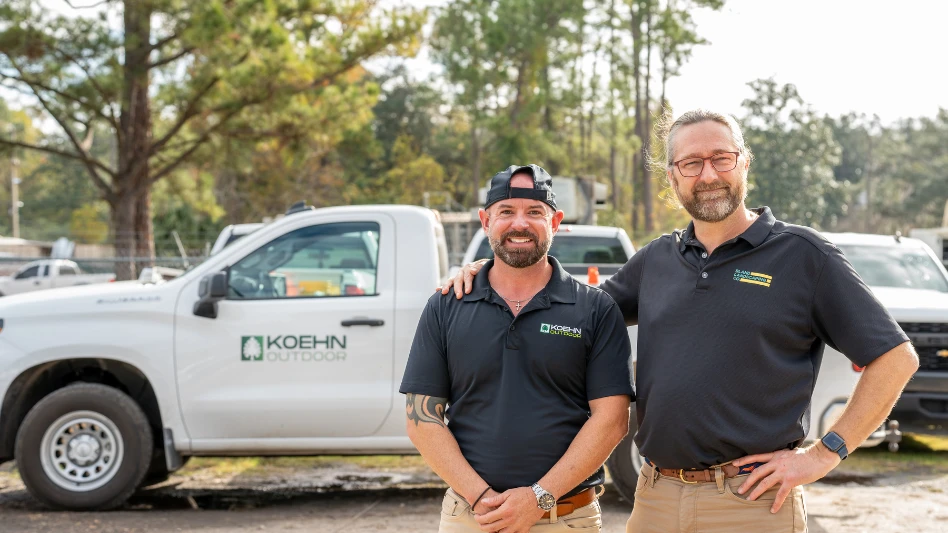 Underground irrigation lines can be damaged by an unaware contractor.You never know what’s lurking underground.
Underground irrigation lines can be damaged by an unaware contractor.You never know what’s lurking underground.
For Andrew Aksar, it turned out to be a drainage pipe. And that one little pipe caused a big headache and led to a rewrite of his previous contract clauses.
“Most of the updating I do (to contracts) is through live and learn,” says the president of Walkersville, Md-based Outdoor Finishes. “In the past, we had no clause about (private) underground obstructions. I did have a clause regarding public utilities like electric, telephone, cable TV, but I did not have anything regarding private utilities.”
It all happened this summer, when Outdoor Finishes was contracted to do some landscaping for clients who recently purchased a home. The landscaping company generally does basic tree and shrub plantings, along with ponds, patios, retaining walls and lighting. Aksar received the signed contract three weeks before the clients settled the deal on the house. Afterward, they contacted Aksar and informed him the neighbor said there were buried drain lines. The neighbor knew, he said, because the neighbor had installed them himself.
Aksar had already priced the job without knowledge of the drain lines. He says he was focusing on how to move air conditioning units, sheds, shrubs and trees, and he overlooked the downspout situation. Water from three roof downspouts was being piped through the buried drainage pipe.
“We’ve had a couple incidents where we have people with underground obstructions,” Aksar says. “We’ve had problems where we’ve been doing excavating and hit these pipes. Often times, we have no idea they exist underground.”
Aksar decided to replace the piping after working out a deal with the client. Outdoor Finishes would supply the labor at the company’s expense, and the customer would pay for the materials. The company essentially did three hours of work for free.
“Usually, the clients wanted us to take responsibility for (underground mistakes), which is why we added the clause that said we were not responsible for these issues,” he says.
Originally, Aksar had a disclaimer page that clients must initial. But after this incident, he realized the clause was too vague.
“We have it covered now that anything underground that we can’t see or are not aware of, we’re not liable for,” he says. “We lose time and money if we fixed it at our cost, but by having a clause regarding such an issue, it enables us to charge for fixing it.”
Aksar says Outdoor Finishes has been updating its contracts and clauses consistently since forming in 1990, but there are always things the company forgets. That’s why he recommends spelling everything out as clearly as possible so contractors are never stuck in an awkward – or expensive – situation.
“In the future,” Aksar says, “that will help alleviate me from standing on their front steps going back and forth arguing about who’s going to fix it and where are the costs.”
The author is an intern at Lawn & Landscape magazine. She can be reached at kpickerel@gie.net.

Explore the January 2010 Issue
Check out more from this issue and find your next story to read.
Latest from Lawn & Landscape
- Analysis of an entrepreneur
- Terra Nova's Sedum Conga Line variety wins Best of 2024 Perennial award
- Different ways to distribute
- Case's 580EV electric backhoe loader wins Good Design Award
- Davey Tree promotes Dan Herms to VP, GM of Davey Institute
- Caterpillar's Cheryl H. Johnson set for April retirement
- Registration open for sixth annual Lawn & Landscape Technology Conference
- 12 interview questions to help you hire winners





